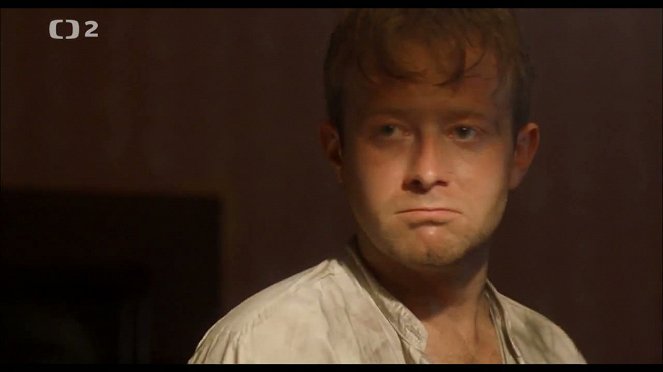Reżyseria:
Vladimír MichálekScenariusz:
Jiří KřižanZdjęcia:
Martin ŠtrbaMuzyka:
Michał LorencObsada:
Bogusław Linda, Olaf Lubaszenko, Jiří Bartoška, Agnieszka Sitek, Vlasta Chramostová, Ľudovít Cittel, Martin Sitta, Jiří Holý, Milan Riehs (więcej)Opisy(1)
Czechosłowacja, rok 1943. W pobliżu wsi stacjonują Niemcy - ich złowrogą obecność daje się wyczuć w atmosferze panującej w Lakoticach, w strachu wypisanym w oczach chłopów. Przyczyną owego lęku jest nie tylko bliskość okupanta, lecz przede wszystkim Sekal, który przypochlebia się hitlerowcom, denuncjując niepokornych gospodarzy. Ofiary donosów lądują w obozie koncentracyjnym, Sekal zaś przejmuje ich majątki. Rolnicy postanawiają zabić zdrajcę. Ma tego dokonać Jura Baran, kowal niedawno przybyły do wioski. (TVP)
(więcej)Recenzje (4)
In terms of craftsmanship, this film is a showcase of highly professional work, rarely seen in the Czech Republic. Sekal Has to Die definitely ranks among the top five most significant films in Czech post-revolution history. Compared to the semi-amateur approach of many creators, it is an example of highly professional work by the entire crew and especially the production team. Yes, it's possible to debate the "cold calculation" and "contrived plot," but dramatically, Sekal Has to Die works, unlike many so-called auteur films made for the director and a few close friends. The idea of enlivening the film with Polish actors is excellent because playing in a small sandbox isn't sensible, and both Bogusław Linda and Olaf Lubaszenko are among the top Polish actors. Besides depicting the stagnant atmosphere of a conservative, remote Moravian village, the film raises a fundamental question: To what extent are we shaped by our surroundings, and where is the cause and effect of human actions? Did Sekal become a human swine because his environment treated him swinishly, and could it have been different if...? Overall impression: 90%.
()
Of similar films set during the Protectorate, Sekal Has to Die comes off as a film that is still learning to deal with that historical era. It's a powerful ancient drama with elements of a western. Everybody wears the same clothes, the village is empty, the local elders decide as one man, and apart from the two solitaires, only the church comes into the picture. The international cast forces the production into erratic post-synchronicities and heightens the sense of foreignness by having the evil and its judge played by Poles. The whole is intense, but lacking in the individual parts. Bartoška and Chramostová managed to transcend their shadow and Gustav Nezval was given the best role at the end of his. However, the reputation that Michálek earned in the 1990s was not fulfilled in the following two decades, and today he is no longer a name that automatically arouses interest and expectations.
()
What an atmosphere. The camera was perfect, I felt like I was really standing by the cornfields, and I could smell the scent rising from the sun-heated grass and see the hot air shimmering above the corn. Sorry, childhood memories. And that's the point, the creators were able to make me recall all that, which is pretty impressive. And it wasn’t just the camerawork, the film also had a great story, the characters were well cast and the only thing that annoyed me was the final duel which didn't feel very natural. I understand that the creators didn't want to get in trouble with the Polish in case one (or both) of the men didn’t return from their business trip, but you could really tell. But that’s just me quibbling over details, overall it was a treat.
()
I avoided the movie for a long time because I didn't have much faith in it, but I just convinced myself again that I should give every film a chance. Sekal Has to Die is a film with a great plot, which doesn't escalate dramatically but rather unfolds gradually, both humanely and inhumanely at the same time. A film about people you don't want to like, but you know that such people exist.
()

